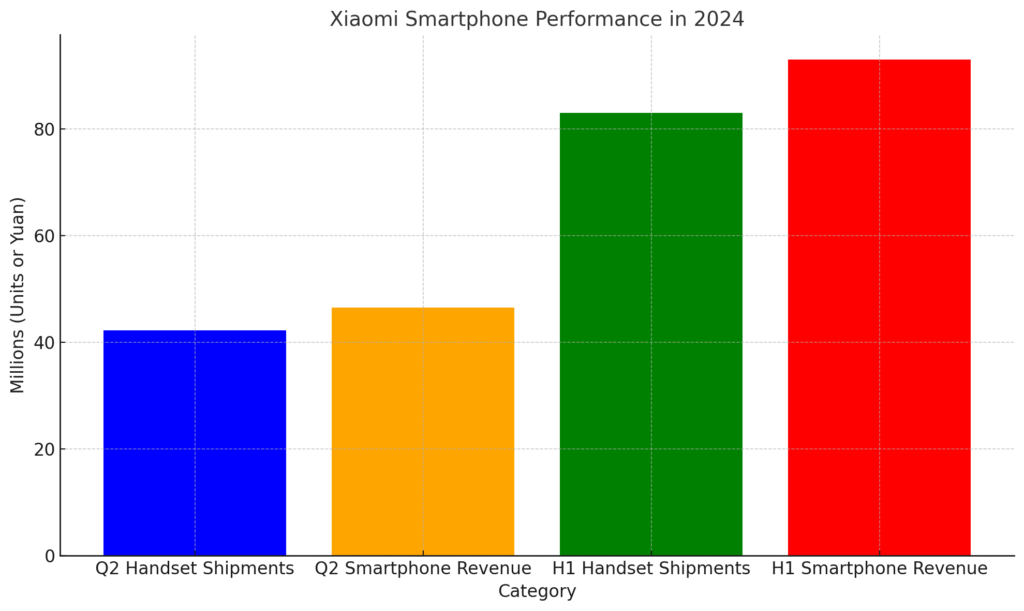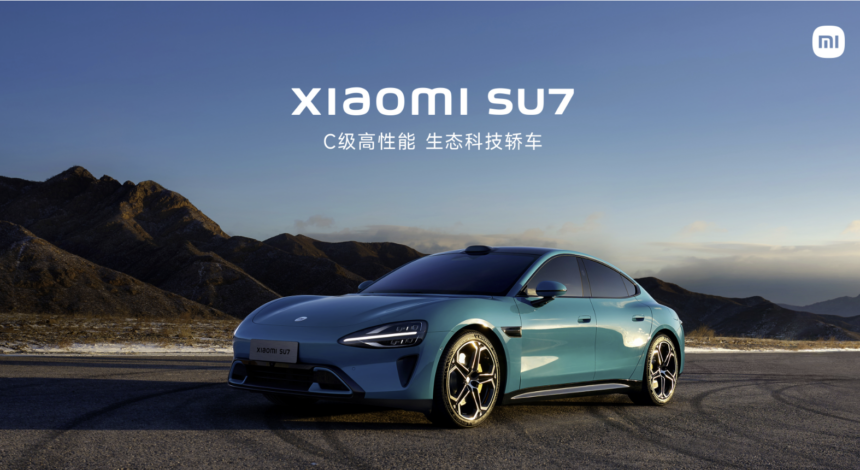Xiaomi EV Revenue Surges to 6.4 Billion Yuan
Xiaomi has reported a significant revenue increase from its electric vehicle (EV) division. In Q2 2024, Xiaomi’s EV revenue reached 6.4 billion yuan (US$897.8 million). This growth underscores the company’s efforts to scale production and meet its ambitious goals for the SU7 sedan. The Beijing-based tech giant saw a 32% year-on-year revenue rise, hitting 88.9 billion yuan in the second quarter. This was largely due to strong smartphone sales and accelerating EV deliveries. Additionally, Xiaomi’s profits increased by 38.3%, reaching 5.1 billion yuan.
Stock Performance Amid Strong Financials
Despite these financial gains, Xiaomi’s shares fell by 0.9% on Wednesday. The stock closed at HK$17.52 (US$2.50) in Hong Kong. However, the company remains optimistic about its future prospects in the EV market.
Strong Sales of SU7 Sedan Boost Xiaomi EV Revenue
In the second quarter, Xiaomi delivered 27,307 units of its SU7 sedan. This significantly contributed to the reported Xiaomi EV revenue. While the EV division recorded a net loss of 1.8 billion yuan, it achieved a gross profit margin of 15%. Xiaomi attributes this to higher-than-expected deliveries. During an earnings press conference, Xiaomi’s president, Lu Weibing, revealed that monthly deliveries of the SU7 reached around 10,000 units by June. This followed an increase in production capacity.

Initial Challenges and Future Goals
This quarter marks the first time Xiaomi disclosed the financial performance of its EV unit. The launch of the SU7 in March was accompanied by a strategy to sell vehicles at a loss. This decision was influenced by intense competition in the crowded EV market. On average, Xiaomi lost 65,900 yuan per car delivered in the June quarter.
Lu Weibing explained that the losses are due to Xiaomi’s small share of the EV market. He also pointed out the high costs associated with developing the company’s first vehicle. Car manufacturing, he noted, heavily relies on economies of scale. Currently, Xiaomi’s production levels remain relatively small.
Expansion Plans for Xiaomi’s EV Division
Looking forward, Xiaomi plans to deliver 100,000 SU7 units by November. The company also aims to expand its EV retail network to 100 centers by the end of the year. This is an increase from 87 locations across 30 cities as of June. By the end of July, Xiaomi had delivered around 35,688 SU7s. The company’s Beijing EV factory doubled its production shifts in June to meet the annual target of 120,000 units.
Xiaomi’s Consistent Success in Smartphones
Beyond its EV endeavors, Xiaomi has impressively maintained its position as the world’s third-largest smartphone manufacturer. Notably, this streak has lasted for 16 consecutive quarters. In the June quarter, Xiaomi saw a remarkable 28% increase in handset shipments, totaling 42.2 million units. Consequently, smartphone revenue rose by 27.1%, reaching 46.5 billion yuan. Moreover, for the first half of the year, Xiaomi shipped 83 million handsets, generating a substantial 93 billion yuan in revenue.

Future Outlook and Strategic Goals
As Xiaomi continues to scale its EV production and expand its market presence, the company remains committed to overcoming challenges in the electric vehicle industry. The future looks promising for Xiaomi’s EV revenue growth as the company works to achieve its ambitious goals in the rapidly evolving automotive market.


